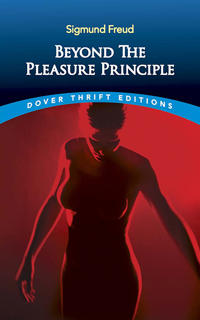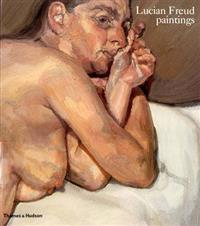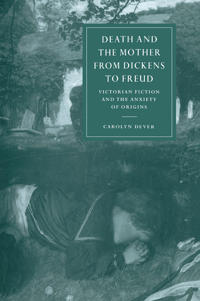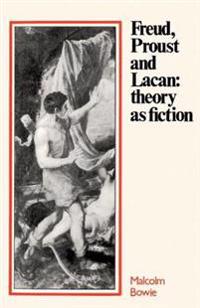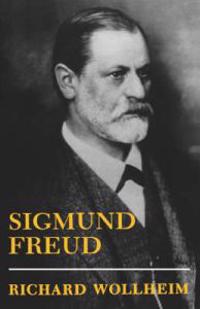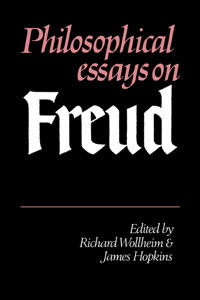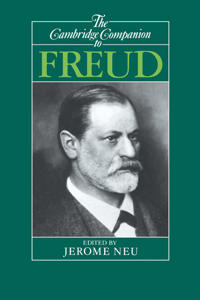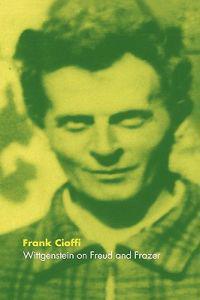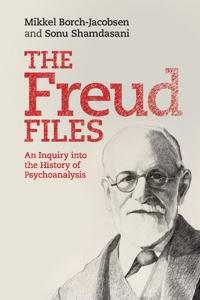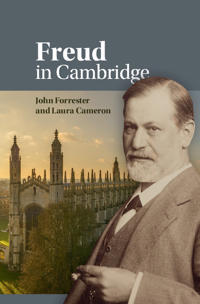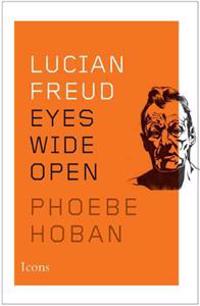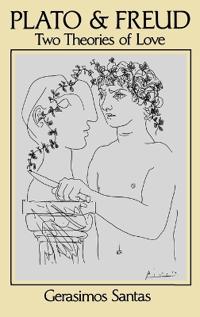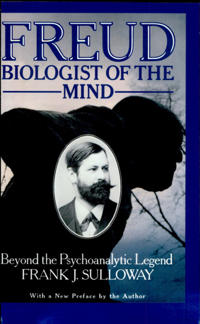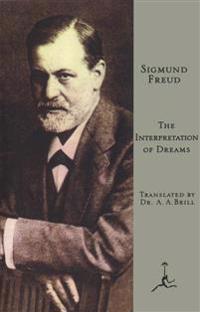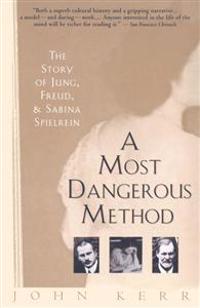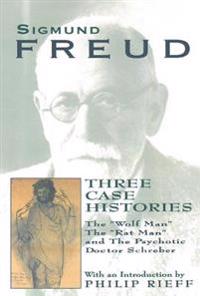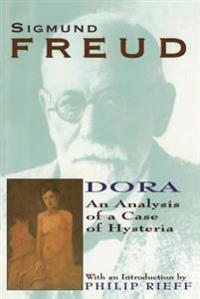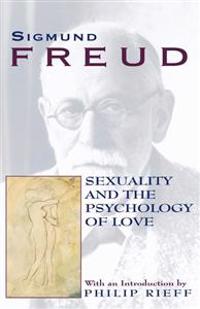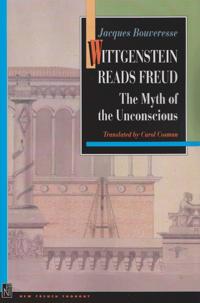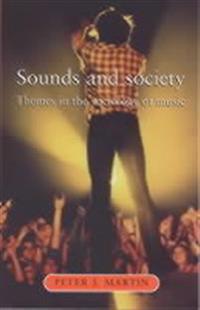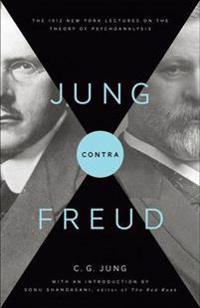Beyond the Pleasure Principle (Pocket)
avSigmund Freud
ISBN: 9780486790305 - UTGIVEN: 2015-02First published in 1920, "Beyond the Pleasure Principle "documents Freud's expansion of his psychological theories. Heretofore insisting that pleasure and sexual instinct are the chief factors in human behavior, Freud introduced the concepts of death drive and death instinct in this volume, depictin[...]
Lucian Freud (Häftad)
avRobert Hughes
ISBN: 9780500275351 - UTGIVEN: 198910It is both startling and disconcerting, producing some of the most powerful and moving visual images to have appeared in the last thirty years. Freud once dubbed "the Ingres of existentialism" has almost single-handedly redefined the figurative painting of our time. No other living artist possesses [...]
Death and the Mother from Dickens to Freud (Häftad)
avCarolyn Dever
ISBN: 9780521032551 - UTGIVEN: 200611The cultural ideal of motherhood in Victorian Britain seems to be undermined by Victorian novels, which almost always represent mothers as incapacitated, abandoning or dead. Carolyn Dever argues that the phenomenon of the dead or missing mother in Victorian narrative is central to the construction o[...]
Freud, Proust and Lacan (Häftad)
avMalcolm Bowie
ISBN: 9780521275880 - UTGIVEN: 198801The views of Freud, Proust and Lacan are depicted through this staging of a series of provocative dialogues between psychological science and imaginative literature of the twentieth century.[...]
Sigmund Freud (Häftad)
avRichard Wollheim
ISBN: 9780521283854 - UTGIVEN: 198103This intellectual biography of Freud presents a fresh and thorough analysis of the whole body of his writings. Each of these is studied in its context, and their chronology is shown to be of great importance. The author demonstrates how Freudâs exploratory and sometimes hesitant efforts to expl[...]
Philosophical Essays on Freud
ISBN: 9780521284257 - UTGIVEN: 1983-01Philosophers are increasingly coming to recognize the importance of Freudian theory for the understanding of the mind. The picture Freud presents of the mind's growth and organization holds implications not just for such perennial questions as the relation of mind and body, the nature of memory and [...]
The Cambridge Companion to Freud
ISBN: 9780521377799 - UTGIVEN: 1991-11Does Freud still have something to teach us? The premise of this volume is that he most certainly does. Approaching Freud from not only the philosophical but also historical, psychoanalytical, anthropological, and sociological perspectives, the contributors show us how Freud gave us a new and powerf[...]
Wittgenstein on Freud and Frazer
ISBN: 9780521626248 - UTGIVEN: 1998-08What is it that troubles and preoccupies us about the anxieties and anguishes of social and private life? Have advances in the disciplines of psychoanalysis, psychology or the social sciences in general ministered to our needs in these areas? In this forcefully argued collection of essays, Frank Cio[...]
The Freud Files (Pocket)
avMikkel Borch-Jacobsen, Sonu Shamdasani, Mikkel Borch-Jacobsen
ISBN: 9780521729789 - UTGIVEN: 201201How did psychoanalysis attain its prominent cultural position? How did it eclipse rival psychologies and psychotherapies, such that it became natural to bracket Freud with Copernicus and Darwin? Why did Freud 'triumph' to such a degree that we hardly remember his rivals? This book reconstructs the e[...]
Freud in Cambridge
ISBN: 9780521861908 - UTGIVEN: 2017-03Freud may never have set foot in Cambridge - that hub for the twentieth century's most influential thinkers and scientists - but his intellectual impact there in the years between the two World Wars was immense. This is a story that has long languished untold, buried under different accounts of the [...]
Freud
ISBN: 9780521864183 - UTGIVEN: 2017-01The life and work of Sigmund Freud continue to fascinate general and professional readers alike. Joel Whitebook here presents the first major biography of Freud since the last century, taking into account recent developments in psychoanalytic theory and practice, gender studies, philosophy, cultural[...]
Lucian Freud: Eyes Wide Open (Inbunden)
avPhoebe Hoban
ISBN: 9780544114593 - UTGIVEN: 2014-04Phoebe Hoban, author of definitive biographies of Jean-Michel Basquiat and Alice Neel, now turns her attention to Lucian Freud, the grandson of Sigmund and one of the greatest painters England has produced. "Lucian Freud: Eyes Wide Open" is the first biography to assess Freud's work and life, showin[...]
Plato and Freud
ISBN: 9780631159148 - UTGIVEN: 1988-04What is love? Why do we idealize those whom we love? How do we choose whom to love? Are some kinds of love better than others? Each age returns to these questions with renewed perplexity. Gerasimos Santas examinees the two greatest theoretical architectures of love, side by side. It provides a thoro[...]
Freud, Biologist of the Mind (häftad)
ISBN: 9780674323353 - UTGIVEN: 1992-11In this monumental intellectual biography, Frank Sulloway demonstrates that Freud always remained, despite his denials, a biologist of the mind; and, indeed, that his most creative inspirations derived significantly from biology. Sulloway analyzes the political aspects of the complex myth of Freud a[...]
Freud
ISBN: 9780674659568 - UTGIVEN: 2016-10Elisabeth Roudinesco offers a bold and modern reinterpretation of the iconic founder of psychoanalysis. Based on new archival sources, this is Freud s biography for the twenty-first century a critical appraisal, at once sympathetic and impartial, of a genius greatly admired and yet greatly misunders[...]
Technique of Child Psychoanalysis: Discussions with Anna Freud (Häftad)
ISBN: 9780674871014 - UTGIVEN: 1980-01The Interpretation of Dreams (Inbunden)
avSigmund Freud, A. A. Brill
ISBN: 9780679601210 - UTGIVEN: 199705One hundred years ago Sigmund Freud published The Interpretations of Dreams, a book that, like Darwin's Origin of the Species, revolutionized our understanding of human nature. Now this groundbreaking new translation--the first to be based on the original text published in November 1899--brings us a[...]
A Most Dangerous Method: The Story of Jung, Freud, and Sabina Spielrein (Häftad)
avJohn Kerr
ISBN: 9780679735809 - UTGIVEN: 199408"Has all the elements of a juicy novel . . . riveting. . . . Reudite and elegant." --"Newsday
"
NOW A MAJOR MOTION PICTURE, Directed by David Cronenberg and starring Keira Knightly, Viggo Mortensen, Michael Fassbender, and Vincent Cassel.
In 1907, Sigmund Freud and Carl Jung began what pro[...]Three Case Histories (Häftad)
avSigmund Freud, Philip Rieff, Philip Rieff
ISBN: 9780684829456 - UTGIVEN: 1996-11Dora: An Analysis of a Case of Hysteria (Häftad)
avSigmund Freud
ISBN: 9780684829463 - UTGIVEN: 199711Sexuality and the Psychology of Love (Häftad)
avSigmund Freud, Philip Rieff
ISBN: 9780684838243 - UTGIVEN: 199704Freud, Race and Gender (Övrig)
avSander L. Gilman
ISBN: 9780691025865 - UTGIVEN: 1995-12-11A Jew in a violently anti-Semitic world, Sigmund Freud was forced to cope with racism even in the "serious" medical literature of the fin de sicle, which described Jews as inherently pathological and sexually degenerate. In this provocative book, Sander L. Gilman argues that Freud's internalizing of[...]
Wittgenstein Reads Freud (Pocket)
avJacques Bouveresse, Carol (TRN) Cosman, Vincent (FRW) Descombes
ISBN: 9780691029047 - UTGIVEN: 1996-09Did Freud present a scientific hypothesis about the unconscious, as he always maintained and as many of his disciples keep repeating? This question has long prompted debates concerning the legitimacy and usefulness of psychoanalysis, and it is of utmost importance to Lacanian analysts, whose main pr[...]
Freud, the Reluctant Philosopher (Häftad)
ISBN: 9780691145525 - UTGIVEN: 2010-07Freud began university intending to study both medicine and philosophy. But he was ambivalent about philosophy, regarding it as metaphysical, too limited to the conscious mind, and ignorant of empirical knowledge. Yet his private correspondence and his writings on culture and history reveal that he [...]
Jung Contra Freud: The 1912 New York Lectures on the Theory of Psychoanalysis (Häftad)
avC. G. Jung, Sonu Shamdasani
ISBN: 9780691152516 - UTGIVEN: 201112In the autumn of 1912, C. G. Jung, then president of the International Psychoanalytic Association, set out his critique and reformulation of the theory of psychoanalysis in a series of lectures in New York, ideas that were to prove unacceptable to Freud, thus creating a schism in the Freudian school[...]

